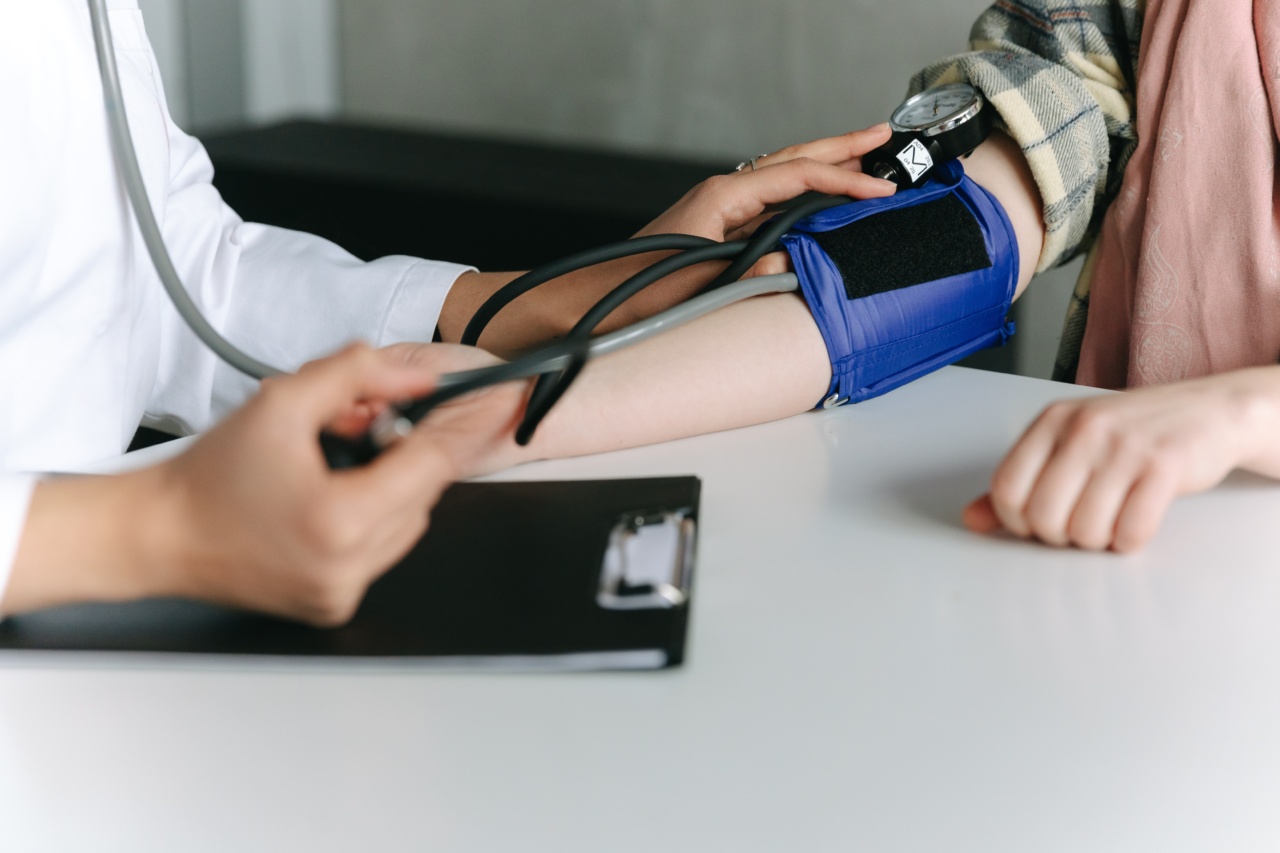Hypertension, commonly known as high blood pressure, is a prevalent health condition that affects millions of people worldwide. It is a major risk factor for heart disease, stroke, and other life-threatening complications.
Hypertension is often referred to as a “silent killer” because it does not usually have any visible symptoms. The only way to know if you have hypertension is by monitoring your blood pressure regularly.
Understanding Blood Pressure
Blood pressure is the force of blood against the walls of your arteries. Arteries are the blood vessels that carry oxygen-rich blood from the heart to the rest of the body.
When your heart beats, it pumps blood into the arteries which causes pressure on the artery walls. This pressure is called systolic blood pressure. When your heart is at rest between beats, the pressure on the artery walls is lower. This lower pressure is called diastolic blood pressure. Blood pressure is measured in millimeters of mercury (mmHg).
A healthy blood pressure reading is typically 120/80 mmHg or lower.
Understanding Hypertension
Hypertension occurs when the force of blood against the artery walls is consistently too high. When this happens, the heart has to work harder to pump blood throughout the body, which can cause damage to the arteries and other organs over time.
Hypertension is typically classified as stage 1 or stage 2, depending on the severity of the condition.
Stage 1 hypertension is defined as a blood pressure reading of 130/80 mmHg or higher. Stage 2 hypertension is defined as a blood pressure reading of 140/90 mmHg or higher.
If left untreated, hypertension can lead to serious health complications such as heart disease, stroke, kidney disease, and vision loss.
Why Monitoring Your Blood Pressure is Key
Monitoring your blood pressure is an essential part of preventing and managing hypertension. Regular monitoring can help you identify changes in your blood pressure and take steps to control it before it becomes a more significant problem.
Blood pressure can fluctuate throughout the day, so it is essential to take readings at different times to get an accurate picture of your overall blood pressure.
How to Monitor Your Blood Pressure
There are different ways to monitor your blood pressure, including:.
- Using a home blood pressure monitor
- Visiting a healthcare provider for regular check-ups
- Participating in workplace wellness programs that offer blood pressure screenings
If you have hypertension, your healthcare provider may recommend monitoring your blood pressure more frequently, such as daily or several times per week.
They may also recommend keeping a record of your blood pressure readings to help track changes over time.
How to Manage Hypertension
If you have hypertension, there are several steps you can take to manage the condition, including:.
- Maintaining a healthy weight
- Eating a balanced diet
- Reducing sodium intake
- Increasing physical activity
- Avoiding tobacco and excessive alcohol consumption
Your healthcare provider may also recommend medications to help lower your blood pressure. It is essential to follow your treatment plan and continue monitoring your blood pressure to ensure that it remains under control.
Final Thoughts
Monitoring your blood pressure is crucial for preventing and managing hypertension. Regular monitoring can help identify changes in blood pressure before they become a more significant problem and allow for a more effective treatment plan.
By taking steps to manage hypertension, you can reduce your risk of serious health complications and lead a healthier life.





























